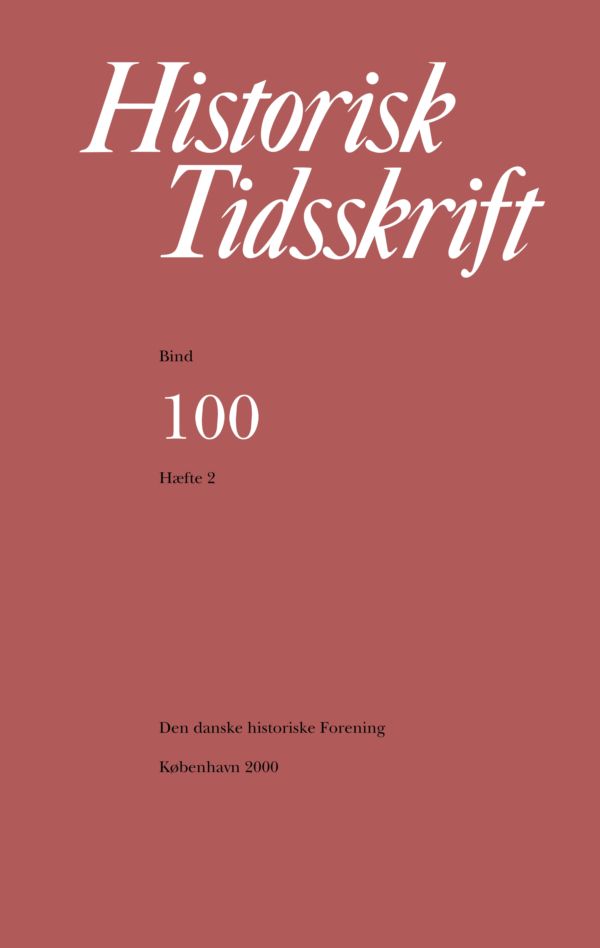Patriarkalisme, velfærdspolitik og Brede Klædefabrik
Resumé
Paternalism, Welfare Policy and the Cloth Mill at BredePaternalism was a widespread type of management in industry during the second half of the 19th century. It has been regarded both as a tradition originating in the pre-industrial era and as an innovative reaction to be emerging socialism. Paternalism has been defined as implying both a manager offering other material benefits in addition to the wage as such, and as a specific power relation permitting the manager to control the workforce even outside the workplace. Inspired by the German historians Thomas Welskopp and Hartmut Berghoff in this article "paternalism" signifies only the power relationship, while the system of material benefits other than wages is called "welfare policy". Welfare policy is a multi-purpose management strategy covering different target groups. Four functions are singled out: a) investments in local infrastructure benefit not only the workers but also the local community; b) by taking up normal community responsibilities for the workers the firm may secure its autonomy vis a vis the local authorities; c) by giving access to limited goods the firm may attract the best part of the available workforce; d) by conditioning the welfare goods on a work contract the firm may discipline and keep its actual workforce. The latter function is normally considered the most important, and during the second half of the 19th century this function was often identified with employers' fight against the labour unions. The other functions, however, help to explain why welfare policy was practised both before and after the breakthrough of the unions. The Brede Cloth Mill, situated at the Millstream north of Copenhagen was known as a paternalistic firm from the 1860s to around 1920. Quite a few paternalistic features remained until it closed down in 1956. The fact that paternalism continued at Brede for so many years after the creation of a labour union in 1898 and the general agreement between the unions and the employers' associations in 1899 has been explained by the isolated location of Brede. But if one considers the welfare benefits that were the most obvious expression of paternalism at Brede they fit easily into the abovementioned four functions of welfare policy. The welfare benefits are, accordingly, not tied to a specific era, on the contrary they may be present anytime when the managerial level attempts to attract, discipline and keep a workforce. Apart from the general observations it is worth noting that through the years 1880-1918 the welfare policy at Brede manifested itself in a single person, the German-born textile engineer Edmund Daverkosen who was the technical director. He showed himself able til live up to the role of a dynamic leader of a large firm as well as a dominant father figure to an entire local industrial community: the archetypical patriarch.Downloads
Publiceret
Citation/Eksport
Nummer
Sektion
Licens
Ophavsret til bidrag i Historisk Tidsskrift tilhører forfatterne og Den danske historiske Forening som udgiver af Historisk Tidsskrift. For illustrationer gælder den ophavsret, som står anført i billedteksten. Ophavsretslovens almindelige bestemmelser gælder, hvilket vil sige, at ophavsretten gælder i 70 år efter forfatterens død. Bidrag i Historisk Tidsskrift må derfor, med forbehold for en ”moving wall” på tre år, frit downloades, læses, gemmes, anvendes og citeres (med kildeangivelse) i privat og videnskabelig sammenhæng, men de må ikke helt eller delvis genudgives af tredjepart, heller ikke i redigeret form, uden tilladelse fra forfatterne og Den danske historiske Forening. Henvendelse skal i så fald rettes til Historisk Tidsskrifts redaktion på histtid@hum.ku.dk.





